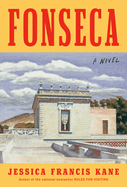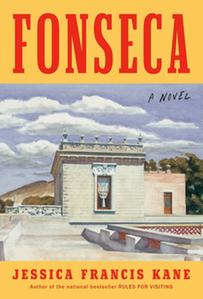
 In 1980, noted British writer Penelope Fitzgerald wrote an essay entitled "Following the Plot," alluding to a trip she and her five-year-old son, Valpy, took to northern Mexico in 1952, at the invitation of two wealthy, elderly women in search of an heir to the fortune from their family's former silver mine. Taking Fitzgerald's barebones description of that strange journey as her starting point, Jessica Francis Kane (Rules for Visiting) has vividly imagined that experience in Fonseca, creating a story that's steeped in atmosphere as it explores themes of class and creativity, seasoning that mix with a touch of romance and even a bit of a ghost story.
In 1980, noted British writer Penelope Fitzgerald wrote an essay entitled "Following the Plot," alluding to a trip she and her five-year-old son, Valpy, took to northern Mexico in 1952, at the invitation of two wealthy, elderly women in search of an heir to the fortune from their family's former silver mine. Taking Fitzgerald's barebones description of that strange journey as her starting point, Jessica Francis Kane (Rules for Visiting) has vividly imagined that experience in Fonseca, creating a story that's steeped in atmosphere as it explores themes of class and creativity, seasoning that mix with a touch of romance and even a bit of a ghost story.
At its heart, Fitzgerald's odd journey was something of an act of desperation. Fitzgerald produced the literary journal World Review with her husband, Desmond, a failed barrister self-medicating with alcohol against the trauma he experienced from his service in World War II. The journal's paltry revenue failed to match its lofty reputation, leaving the family nearly destitute and at risk of losing their London home.
But when she arrives in Fonseca (Fitzgerald's fictional name for the real-life town of Saltillo), home to spinster Doña Elena Delaney and her sister-in-law Doña Anita, she finds she's only one of a collection of "Pretenders" (her term) to the expected inheritance. That group gathers nightly to jostle for the favor of the eccentric women at the family residence where Penelope and Valpy live during their three-month stay, and whose chilly (and perhaps haunted) northeast corner, where Doña Anita's husband died, they've been warned to avoid.
For Penelope, who's three months pregnant with her third child when she leaves England, the pressure of a competition she finds distasteful is leavened slightly by the presence of the famed painter Edward Hopper and his wife, Jo, whose artistic rivalry provides an intriguing subplot. But her sojourn becomes even more complicated when another Delaney--Ernest from New Jersey--arrives and sparks a mutual attraction that adds an unsought, but hardly unpleasant, dimension to her already fraught emotional life.
Kane paints a revealing, multidimensional psychological portrait of Penelope Fitzgerald, one that's enriched by information she gained from e-mail exchanges with the adult Valpy and his younger sister Tina, excerpts of which appear periodically in the text. It's an unusual, but effective, technique that doesn't detract from the novel's appeal as a work of fiction. Twenty-four years before she published her first novel, the Fitzgerald who appears in Fonseca is a deeply sympathetic character: a loving mother, anguished wife, and writer in whom the fires of literary ambition are smoldering, waiting to burst into flames. --Harvey Freedenberg, freelance reviewer
Shelf Talker: Jessica Francis Kane skillfully imagines British novelist Penelope Fitzgerald's unusual journey to Mexico in 1952.

